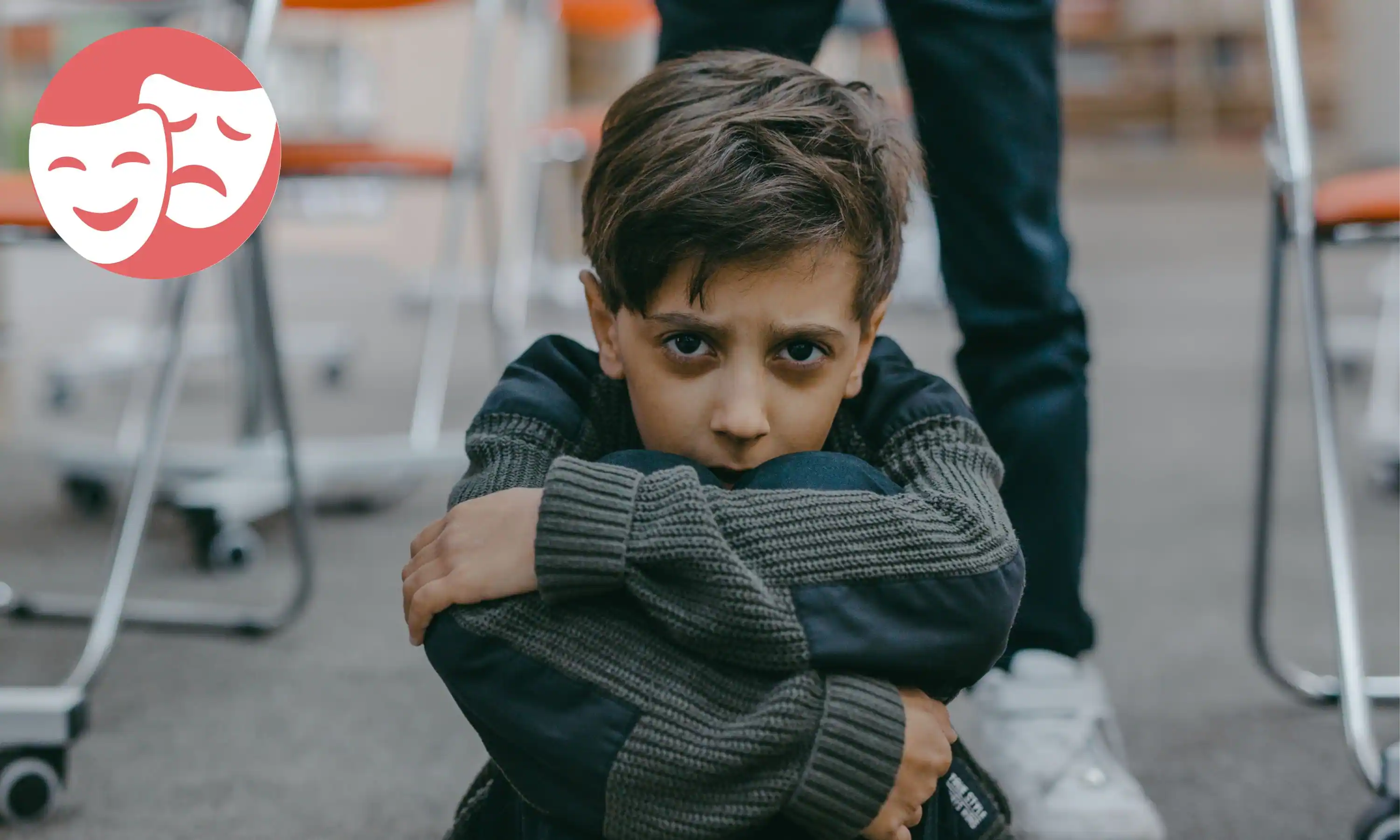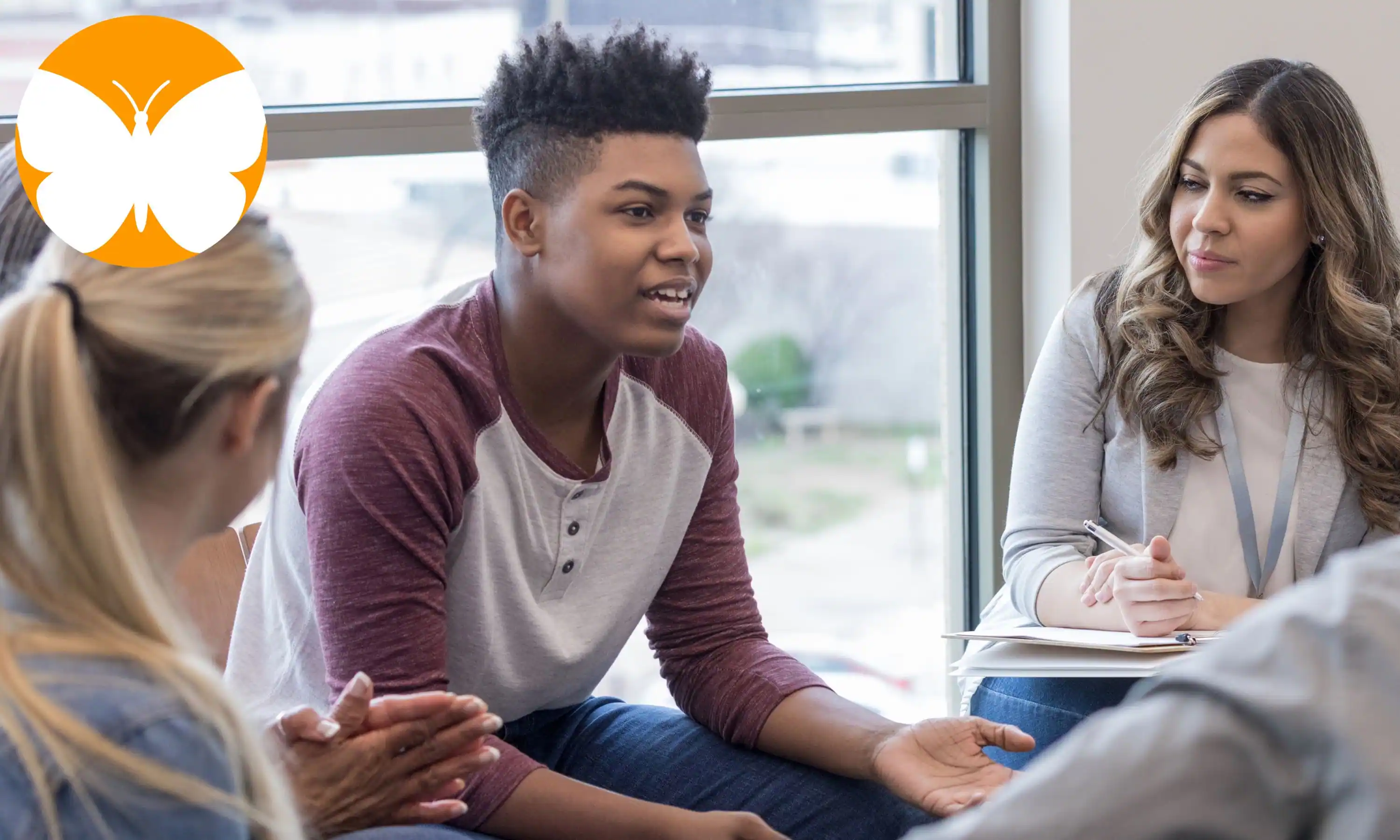Build Courage,
Leadership, and Resilience
Prepare your child to lead with strength, speak up, and face fears.
Fearless Leader
Designed with educators, backed by psychology, and
easy to integrate into your school’s
routine.

Plan Objectives
 Embrace Feedback
Embrace Feedback
Teach children to view feedback as a growth opportunity and handle it constructively.
 Develop Leadership Skills
Develop Leadership Skills
Encourage children to take initiative and inspire others with their actions.
 Overcome Fears
Overcome Fears
Equip children to identify, manage, and move beyond overwhelming fears.
 Communicate Effectively
Communicate Effectively
Help children build skills to articulate ideas and defend opinions respectfully.
Why This Plan?
This plan addresses the following challenges by developing targeted skills

Considers all feedback to be negative

Makes excuses for their behavior

Has fears that overwhelm them

Can not readily defend their opinions
Considers all feedback to be negative
How This Plan Helps
This plan develops emotional resilience by teaching children to process feedback constructively and grow from it.
Skill: Resilience
Course:Resilient You: What is Resiliency?
Makes excuses for their behavior
How This Plan Helps
This plan encourages accountability and reflection to foster responsible and proactive leadership.
Skill:Leadership
Course: Building Leadership Skills
Has fears that overwhelm them
How This Plan Helps
This plan provides tools to identify, confront, and gradually overcome fears that hold them back.
Skill: Fear Management
Course: FearLESS: Building Brave Young Hearts
Can not readily defend their opinions
How This Plan Helps
This plan builds confidence and clarity in expressing thoughts and defending viewpoints respectfully.
Skill: Effective Communication
Course: Communication Foundations
01Handling Feedback
This scenario teaches your child to accept and use constructive criticism as a tool for personal growth.
02Taking Responsibility
This scenario encourages your child to take responsibility for their actions and lead by example in group settings.
03Facing Public Speaking Fears
This scenario guides your child in managing stress and expressing their ideas confidently in front of others.
04Sharing Opinions in Class
This scenario helps your child articulate their viewpoints confidently and respectfully in discussions.
Real-Life Applications
How this plan's skills apply to real-world scenarios for everyday success
Courses Included


Resilient You: What is Resiliency?
Emotional
Resilience
Course Details:
Modules: 4 |
Lessons: 33
Resilience Building: Enhance resilience through effective goal-setting and learning from setbacks.
Emotional Regulation: Improve well-being by developing skills for managing stress and emotions.


Building Leadership Skills
Social
Leadership
Course Details:
Modules: 4 |
Lessons: 32
Leadership Development: Cultivate essential leadership traits including dedication, adaptability, and communication.
Solutions Focus: Master goal-setting techniques to promote a problem-solving approach.


FearLESS: Building Brave Young Hearts
Emotional
Fear Management
Course Details:
Modules: 4 |
Lessons: 31
Understanding Fear: Recognize fear’s role and learn when it’s helpful or harmful.
Coping Strategies: Explore methods to manage fears like social anxiety and failure.


Communication Foundations
Social
Effective Communication
Course Details:
Modules: 4 |
Lessons: 32
Effective Communication: Develop communication skills across multiple mediums for clearer interactions.
Active Listening: Enhance active listening and empathetic communication for better understanding.
Meet the Course Creators

Dr. Kymberli Barker
Resilient You: What is Resiliency?
Dr. Kymberli Barker
Resilient You: What is Resiliency?
FearLESS: Building Brave Young Hearts
Dr. Barker is the mother of two fantastic young men, and they are her priority in life. She holds degrees in biochemistry, math, forensics, and psychology. She is a consultant and a professor at multiple colleges, including the Citadel, and Johns Hopkins Center for Talented Youth. She spent fifteen years in public education, prior. Her personal focus is child advocacy and she developed the Guardian ad Litem/(GAL)/CASA program for the Eastern Band of Cherokee Indians. She is tribally and state sworn as a GAL. Her favorite thing is being a mom.

Lauren Hudak
FearLESS: Building Brave Young Hearts
Lauren Hudak
FearLESS: Building Brave Young Hearts
Lauren Hudak is an educator with over eight years of experience. After graduating from the University of Virginia with degrees in English Literature and Media Studies, she went on to get her Masters in Teaching from New York University. Lauren has worked with all ages of students from Pre-K through college, but she thrives when working with middle schoolers. She believes this is the perfect age to integrate mindfulness, technology, and social emotional learning into student learning objectives. She wants to help students conquer their fears and build a better world. When she’s not teaching, Lauren loves being outdoors, traveling and spending time with her family.

Ashley Valentine
Building Leadership Skills
Communication Foundations
Ashley Valentine
Building Leadership Skills
Communication Foundations
Ashley Valentine is an energetic and creative teacher from the United States who has committed her career to facilitating engaging and unique experiences for learners. She has presented at technology conferences, attended international learning summits, and is deeply passionate about ensuring that learning is both fun and meaningful. She has incorporated escape rooms, social media, experiential learning models, and hands-on techniques to engage Generation Z and prepare for Generation Alpha. An avid learner herself, Ashley holds two degrees in education and engages regularly in professional development so that she can build upon strategies and be responsive to student needs.
Sample Lesson Preview

Resilient You: What is Resiliency?
What is Resilience?
What is Resilience?
What exactly needs to be developed to become resilient?
Many agree there are different levels of resilience to be expected at different ages and even in different fields.
For example training on military resilience is very different from how we would discuss it with teens. This course will introduce concepts for variations and provide links to additional information.
For now, we are going to begin with the idea of the 7 Cs mentioned by Coach Reese. Here they are again in case you missed them: Confidence, Competence, Connection, Character, Contribution, Coping, Control.
These seven concepts really summarize where we need to focus our attention to become stronger in certain areas of our lives.
The students will be developing their personal research focusing on one or more of these areas.
You might consider researching along with them. Where do you think you might work a bit more on skills for bouncing back?
Sample Lesson Preview 
Building Leadership Skills
Reflections on Leadership
Thinking About the Past
Leadership requires many skills. It’s important to learn about leadership prior to taking on a leadership role. You can do this by studying other leaders.
Over time, leaders learn to use tools for reflection so they can make plans related to their own growth.
Just like anything else, pausing to learn, think, and plan can boost a person’s ability to achieve their goals.
Sample Lesson Preview 
FearLESS: Building Brave Young Hearts
Fight, Flight, or Freeze
The Triple F’s of Fear
Fight, Flight, and Freeze are the three basic ways that our bodies respond to threats.
Your brain might decide that fighting the danger is best. For example, if you are faced with an unfriendly animal, you might yell or throw things at it to try to get it to go away. You might have learned to wave your arms and stomp your feet. You’re trying to prove that you are the bigger threat so the animal will leave you alone!
Sometimes, flight is the best option. Your brain wants to get you out of a dangerous situation quickly. This could mean physically running away from something scary, but it could also mean avoiding something that you find intimidating. For example, maybe it means not raising your hand in class because you’re scared you’ll get the answer wrong in front of others.
The last “F” stands for freeze. Sometimes, your brain can’t make a decision. Instead of fighting or running from the danger, you freeze up. You might have a hard time speaking or yelling, your mouth might go dry, or you might feel faint or lightheaded.
Sample Lesson Preview 
Communication Foundations
Setting Goals
Planning Ahead
It's important to make plans related to personal growth as a communicator.
That's why it's important to use all experiences to grow and learn. This means that sometimes people have to get out of their own comfort zone in order to learn.
All people, including children and adults, must work continuously to strengthen their verbal and nonverbal communication, active listening skills, written expression, and online communication.
